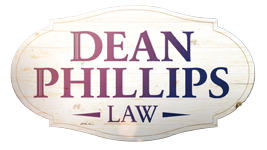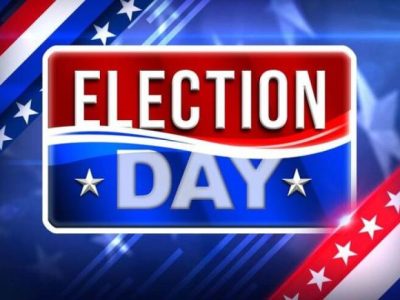Emotions are running very high during this presidential election cycle. Both Donald Trump and Kamala Harris have been targeted by assassins. The lines are almost as sharply drawn in statewide and even local races. Free political expression is one of the foundations of our system of government. But when free political expression and criminal law collide, criminal law almost always wins.
Strong political feelings aren’t a defense in criminal court. Neither is an inflammatory stump speech or political commercial. However, a Marietta criminal defense lawyer often uses these things to confuse the issues at trial and create sympathy for the defendant. During plea bargaining negotiations, this tactic isn’t effective. However, as outlined below, common election-related criminal offenses have many moving parts.
Gun Possession Near a Polling Place
No one, even a person with a license to carry a concealed weapon, can possess a loaded gun within 150 feet of an “active” polling place.
The 150-foot line usually begins at the facility’s property line. If a polling place is inside a library, guns are prohibited in the library’s parking lot and possibly in the McDonald’s next door. Note that once early voting begins, some poling places are “active” seven days a week. Also note that there’s no voter presence requirement. The gun restriction applies even if the polling place is empty.
Other Georgia location restrictions include carrying a gun in a jail, courthouse, school, airport, or nuclear power facility. Local municipalities sometimes have additional restrictions.
These location restrictions generally do not apply to a firearm possessed by a lawful weapons carrier if the firearm is under the license holder’s control in a motor vehicle or is in a locked compartment, container, or firearms rack in or on a motor vehicle parked in a parking facility.
Vandalism of an Election Sign
Defacing an election sign isn’t a separate offense in Georgia or most other states. However, it could constitute three separate offenses in Georgia and most other states:
- Theft (if the defendant steals the sign),
- Vandalism, and/or
- Burglary.
The first two infractions are usually petty misdemeanors. The economic value of an election sign is practically nothing. Burglary is a far more serious infraction, so let’s examine this possible offense in detail.
Georgia has a very broad burglary law. This offense is an unlawful entry with the intent to commit a crime.
There’s no breaking and entering requirement. Walking though an open door is sufficient. Crossing a property line might be sufficient. The intent to commit a crime could be intent to steal an election sign. In fact, burglary charges could hold up in court if the defendant gets cold feet and leaves before committing a crime. Intent alone is enough.
We should also briefly discuss the rules for putting up election signs, posters, or other advertisements. Such posting is prohibited on:
- All public property, unless the owner consents and the sign doesn’t obstruct the right-of-way,
- Any private property, unless the owner consents and the sign’s placer takes it down within the limit prescribed by law, and
- Property zoned for commercial or industrial uses if the placement of such posters, signs, or advertisements conflicts with any zoning laws or ordinances.
The Smith for Senator campaign may have permission to display a sign outside the library. But it doesn’t have permission to put up a sign in a vacant lot next to the library, unless that owner consents.
Voter Suppression
Intimidation, coercion, threats, and other tactics to suppress a person’s ability to vote are illegal under federal and state law.
Usually, such offenses have a double reasonable standard. A reasonable person must feel reasonably intimidated, coerced, or whatever.
If Smith for Senate campaign workers accost people exiting a polling place and ask them who they voted for, some people might legitimately feel intimidated. But most likely, a reasonable person wouldn’t feel reasonably intimidated. Furthermore, campaign workers, journalists, pollsters, and other people have a legal right to ask such questions. Voters have a legal right to refuse to answer.
Once again, we should also mention voter requirements at polling places. In ye olden days, no one particularly cared about such technical requirements. But times are different now.
In 2020, the Secretary of State standardized these requirements throughout Georgia. Now, all federal, state, and county general primaries and elections, special primaries and elections, and referendums in the State of Georgia shall be conducted via an Optical Scanning Voting System as defined by O.C.G.A. 21-2-1(19.1).
Voting at the polls, including both Election Day and absentee-in-person voting shall be conducted via ballots marked by electronic ballot markers and tabulated by ballot scanners. The electronic ballot markers and ballot scanners shall be supplied by the Secretary of State or purchased by the counties with the authorization of the Secretary of State. Absentee-by-mail voting shall also be conducted through the use of an optical scanning voting system.
In some cases, polling attendants can pass the buck. The Superintendent must stock every polling place and advance voting location with a sufficient number of blank paper ballots that can be marked by pen available for use in the event of emergency. The election superintendent shall also be prepared to resupply polling places with emergency paper ballots in needed ballot styles in a timely manner while voting is occurring so that polling places do not run out of emergency paper ballots.
Voter Fraud
In many ways, voter fraud resembles online account hacking. Some hackers want money. Others want to cause a fuss or embarrass an organization. Regardless of the motive, online hacking is illegal.
Similarly, some voter fraudsters want to vote for (or against) Donald Trump so badly that they’ll falsify documents or lie to election officials. But most fraudsters want to cause a fuss or embarrass an organization. In fact, many election fraudsters brag about their crimes on social media. Ordinarily, fraud requires material gain. But election fraud doesn’t have this requirement.
Be careful how you vote for the candidates of your choice this fall. For a free consultation with an experienced Marietta criminal defense lawyer, contact The Phillips Law Firm, LLC. The sooner you reach out to us, the sooner we start working for you.



 Do Warrants Have an Expiration Date?
Do Warrants Have an Expiration Date?